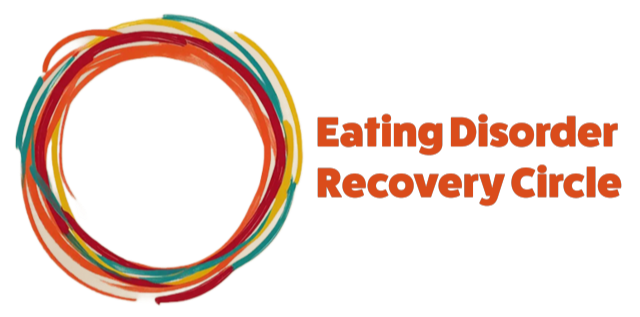How to Respond to Diet Talk & Triggering Conversations
Mar 08, 2025Diet talk is everywhere—whether it’s friends discussing their latest weight-loss plans, family commenting on portion sizes, or colleagues talking about ‘being good’ or ‘cheating’ with food. These conversations can feel exhausting, invalidating, and even triggering in eating disorder recovery.
You don’t have to sit in silence, engage, or absorb their words—there are ways to protect your recovery while staying true to yourself.
If diet talk or triggering conversations bring up frustration, anger, or fear of judgment, check the Feelings Navigator for tools to manage those emotions.
Step 1: Recognise That You Are Not Responsible for Their Beliefs
When people talk about diets, weight, or food rules, they’re speaking from their own conditioning, experiences, and insecurities—not from a place of truth.
🚫 Their beliefs do not define your reality.
🚫 You do not have to convince them to think differently.
🚫 You do not owe anyone an explanation for your recovery.
💡 Remind yourself: “Just because they believe it doesn’t mean it’s true.”
📌 If these conversations make you doubt your own recovery, share your thoughts inside The Circle for reassurance and support.
Step 2: Decide How You Want to Respond
You have several choices when faced with diet talk or triggering conversations. None of them are wrong—choose what feels safest and most empowering for you in the moment.
🔹 Option 1: Set a Clear Boundary
✔ “I’d rather not talk about diets—let’s focus on something else.”
✔ “I’m working on a healthier mindset around food, so I’d rather not discuss weight or eating.”
🔹 Option 2: Challenge the Conversation (If You Feel Safe Doing So)
✔ “It’s interesting how much diet culture influences the way we think about food and bodies.”
✔ “Have you ever noticed how often these conversations come up? It’s exhausting.”
🔹 Option 3: Remove Yourself from the Conversation
✔ You don’t have to stay. Walking away is a valid response.
✔ “I’m going to step away for a bit—catch you later.”
💡 The goal isn’t to ‘win’ the conversation—it’s to protect your peace.
📌 If setting boundaries feels difficult, check the Feelings Navigator for tools on confidence and self-trust.
Step 3: Protect Your Recovery in Social Situations
Sometimes, you can’t avoid diet talk—especially at family gatherings, work events, or social settings. But you can prepare yourself to handle it in a way that keeps you grounded.
✔ Have an exit strategy. If conversations turn toxic, plan an excuse to step away.
✔ Bring a support person. If possible, have someone there who understands your boundaries.
✔ Mentally detach from the conversation. Imagine a glass wall between you and the words—they don’t have to enter your space.
💡 You do not have to engage just because someone else brings it up.
📌 If you're struggling with diet talk in social situations, ask for support inside The Circle.
Step 4: Responding to Comments About Your Body or Eating
Unwanted comments about your body or food choices can feel especially personal. Here’s how to respond with confidence (or shut it down completely).
🔹 If someone comments on your body:
✔ “I don’t discuss my body—let’s talk about something else.”
✔ “I’d appreciate it if we could focus on things that actually matter.”
🔹 If someone questions what you’re eating:
✔ “I trust my body to tell me what it needs.”
✔ “I’m focusing on nourishment, not external opinions.”
🔹 If someone pressures you to eat a certain way:
✔ “I know what works best for me, but thanks for your concern.”
✔ “I’d rather make my own choices—let’s talk about something else.”
💡 You don’t have to justify your body, your eating, or your recovery to anyone.
📌 If body or food comments feel overwhelming, check the Feelings Navigator for tools on managing triggers.
Step 5: Engage with Supportive Conversations
It can feel exhausting when people around you constantly engage in diet talk. Spending time with people who respect your recovery makes a huge difference.
✔ Engage with discussions inside The Circle, where diet culture isn’t the focus.
✔ Practice talking about things that bring you joy instead of weight, food, or body image.
✔ Limit your time with people who make you feel drained, when possible.
📌 If you’re feeling isolated, check in with The Circle for reminders that you’re not alone.
When to Seek Extra Support
If diet talk or triggering conversations are making recovery feel impossible, it’s okay to reach out for help.
🔹 Talk to a therapist or recovery coach if certain conversations cause distress.
🔹 Use The Circle to connect with others who understand what you're going through.
🔹 Remind yourself: Diet culture is loud, but it is not the truth.
Next Steps
🎯 If triggering conversations bring up distress, visit the Feelings Navigator for grounding tools.
🎯 If you need support setting boundaries, read "How to Ask for Support Without Feeling Like a Burden".
🎯 Join The Circle to share your experiences and get advice on handling diet talk in recovery.
Final Reminder
🚀 You do not have to engage in diet talk. You do not have to justify your recovery. You do not have to absorb toxic messages.
You are breaking free, and that is something to be proud of. ❤️

